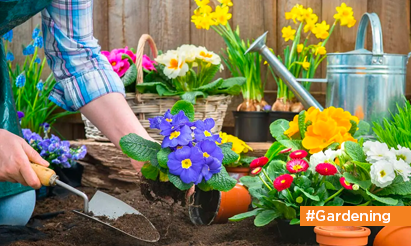How to protect your children from accidents and injuries at home? 5 safety principles for children
A home is a relaxing environment, and we consider it to be the safest of all. However, accidents do happen, even while we are at home, and in the vast majority of situations, these mishaps are avoidable.
Once you have children at home, it can be challenging to always look after them. Accidents do not warn everyone before they happen, so we must take precautions at home to safeguard them. Simple precautionary measures taken inside the confines of our homes can help you and your family enjoy a safe and healthy life.
- What are the top ten safety rules for kids at home?
Keep a close eye on your children while they are using the restroom.
It’s critical to include this in your child’s home safety measures, especially in the bathroom, which can be one of the most dangerous areas in the house. Most children like showering or bathing, but if they are not constantly monitored in the bathroom, accidents can occur. Certain safety precautions can be taken to make one’s restroom a safer environment, particularly for children.
Here are some additional safety precautions you can take to ensure that your restroom is a secure environment:
- To keep your children safe, remember to babyproof your bathroom, particularly all electrical outlets. All electrical gadgets should be kept in a closed cabinet out of reach of youngsters.
- Slippery surfaces in the bathroom can lead to accidents, so acquire some adhesive floor stickers to boost the resistance in your bathroom floor.
- Keep any chemicals out of reach of youngsters
Keeping all types of chemicals away from your children should be one of the most important safety rules at home. Children are curious, and if given the opportunity, they may try tampering with these dangerous compounds. Keep all toxic chemicals in a locked cabinet in a safe and secure location at home to provide optimal safety for children.
- When using highchairs, use extreme caution.
Once children have learned to sit, high chairs might be a useful option. Even still, such chairs can be quite hazardous, and specific safety precautions should be taken at home in this scenario. Here are a few examples:
- Make absolutely sure the chair has some weight to it so that children can not simply tip over.
- You should acquire some child safety straps to keep your youngster from falling down when he or she is sitting in the highchair.
- If you’re using a folding chair, remember to lock it every time you open it to avoid it collapsing down while you’re using it.
- Retain glasses, knives, and other potentially hazardous things out of reach of children.
Certain everyday products in our homes can be dangerous to our children. Glasses, small mirrors, scissors, knives, ropes, and other items fall into this category. Every one of these goods must be kept in a safe and secure location out of reach of your children. This is among the most important safety regulations for class 3 kids at home, because they like to play with and experiment with these potentially hazardous products. Consider it an important rule in your home’s safety regulations sheet and stick to it.
- Defend Your Children From Abuse.
Child abuse is among the most delicate topics nowadays, and it can be difficult to notice. A few of these preventive methods can be included as one of the few safety guidelines at home to keep your kids safe from child abuse:
- Educate your kids not to engage in conversation with strangers. Teach them to notify you right away when a stranger approach them frequently, particularly if they are alone.
- It is critical to teach your children, regardless of gender, the difference between bad and right touch in order to keep them secure and attentive. Allow children to be aware of the numerous body areas that are not permitted to be touched by anybody other than their parents so that they can recognise an inappropriate touch if it occurs.
- Talk to your kids about it. Tell them they may talk to you about anything because you’re here to protect and look after them. It can assist your child overcome any apprehensions he or she may have about contacting you about any subject.
- Set aside time for your children. Maintain a healthy work-life balance to keep your relationship with your children strong. Remember to treat them with gentleness, openness, and warmth.
Disclaimer: The views expressed above are for informational purposes only based on industry reports and related news stories. PropertyPistol does not guarantee the accuracy, completeness, or reliability of the information and shall not be held responsible for any action taken based on the published information.




